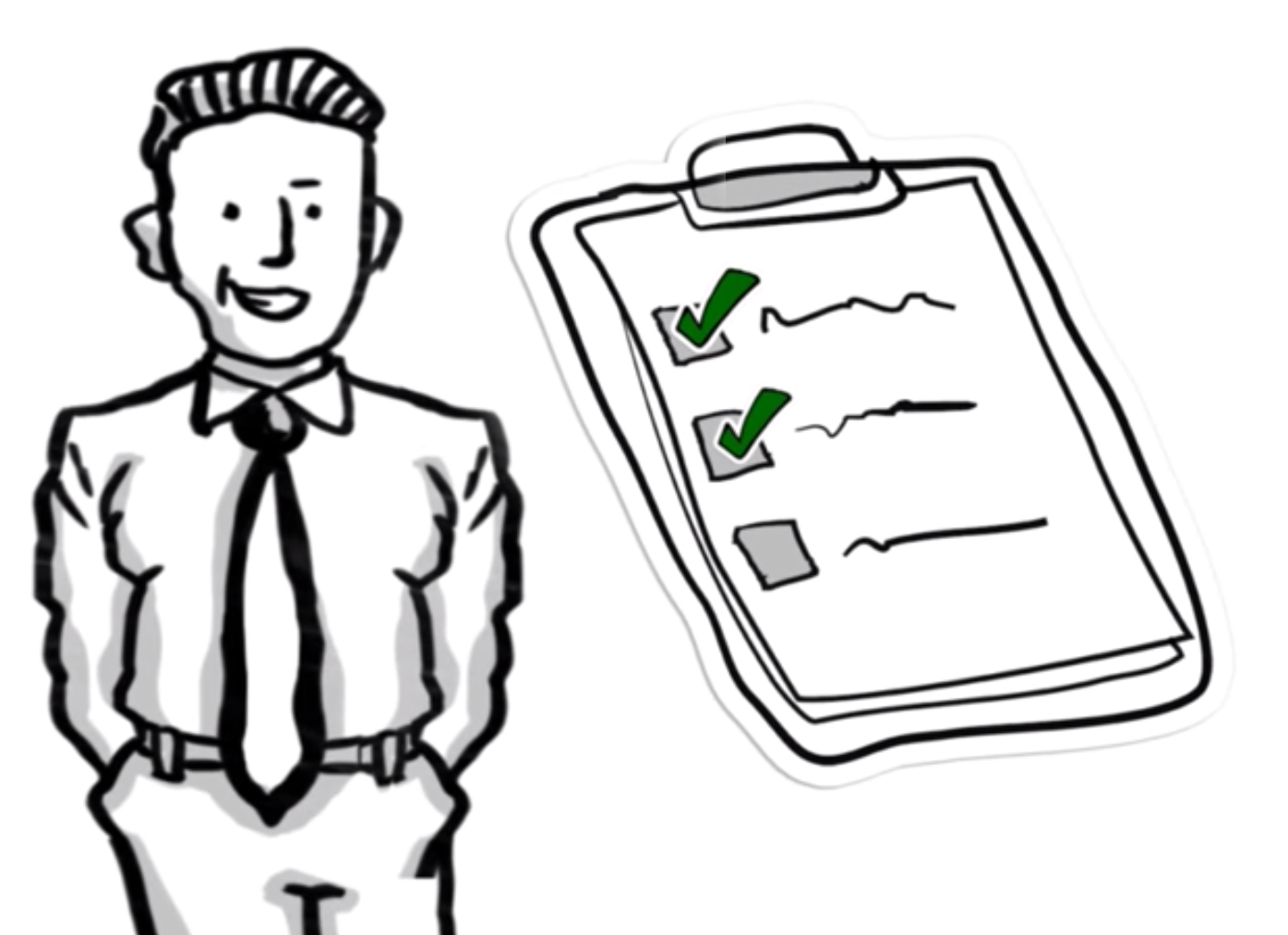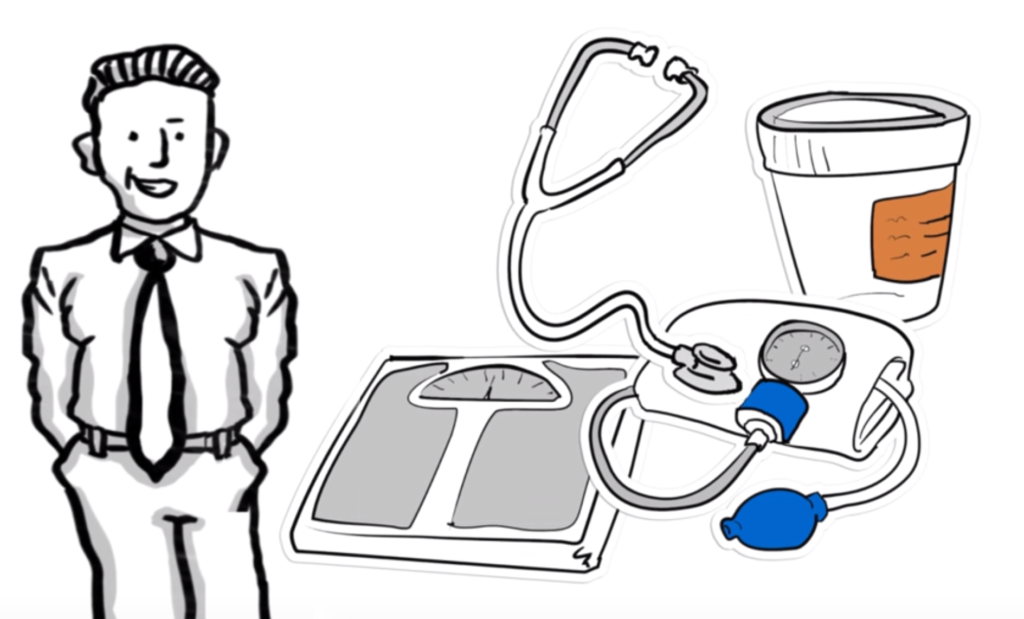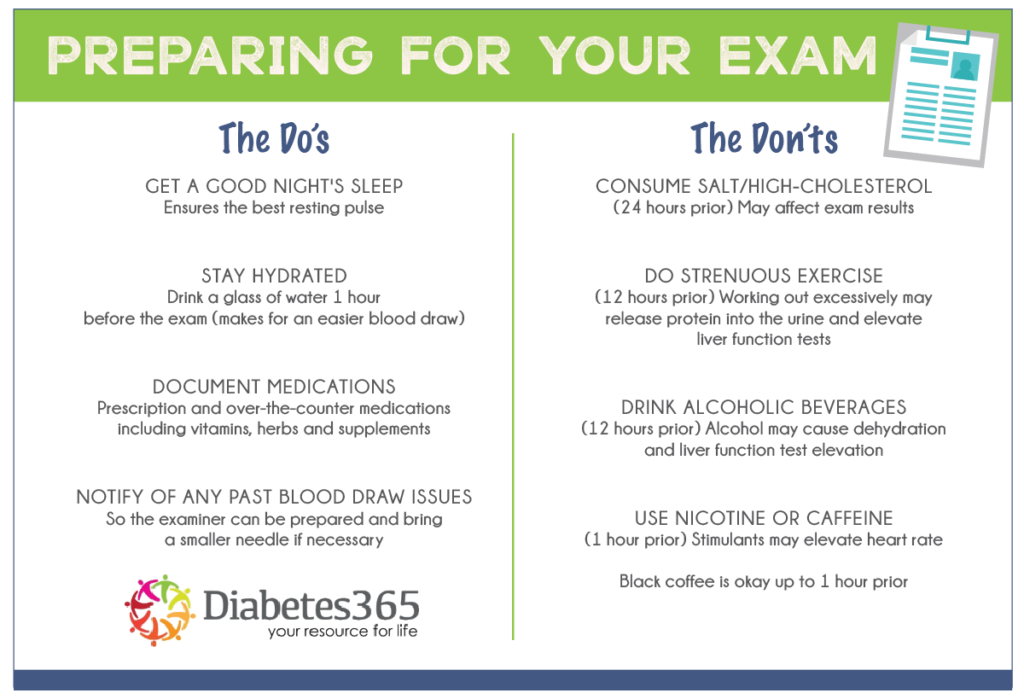An entrepreneur at heart, Chris has been building and writing in consumer life insurance and health for over 11 years. He's contributed to 1,000+ medical, health, financial and wellness articles and product reviews written in the last 11 years.In addition to Pharmacists.org, Chris and his Acme Health LLC Brand Team own and operate Diabetic.org, PregnancyResource.org, Multivitamin.org, and the USA Rx Pharmacy Discount Card powered by Pharmacists.org.Chris has a CFA (Chartered Financial Analyst) designation and is a proud member of the American Medical Writer’s Association (AMWA), the International Society for Medical Publication Professionals (ISMPP), the National Association of Science Writers (NASW), the Council of Science Editors, the Author’s Guild, and the Editorial Freelance Association (EFA).
SHARE
Written By

Fact Checked By

Chris Riley
Diabetes 365 follows very strict guidelines for accuracy and integrity on all content.
To learn about Diabetes 365 commitment to transparency and integrity, read our Editorial Disclosure
Last Updated on April 15, 2025
So, you are looking into applying for life insurance coverage and you were just notified that to do so, you need to agree to a medical exam. As a large factor of underwriting, the medical exam will tell the insurance company just how great – or little – of a risk that you are. Unfortunately, not everyone with diabetes will qualify for a no medical exam life insurance policy. You may be in a situation that you HAVE to complete this paramedical exam, in order to qualify for life insurance with diabetes.

The results of the medical exam, combined with other application information, is used to determine whether you are approved for a policy. And, if so, what your premium will be. Lab results play a major part into the approval process. In event your lab results are abnormal, or show that your A1C reading is outside of normal range, ( 10.0 or higher) you will be declined for life insurance.
Life insurance underwriters will also want to review several other health alerts such as:
- Use of nicotine
- Drug use
- Elevated Blood Sugar
- Microalbumin
- Proteinuria
- Liver and Kidney functions
- Use of Diabetes Related Technology
Having Diabetes usually means your life insurance offers or rates may come back sub standard. Meaning an underwriter will assign a table rating, based off your complete health profile. The higher the table rating, the higher your rates for life insurance will be. Or in some cases, if your lab results and health profile are favorable, you may qualify for rates that people without diabetes qualify for.
Now, before you panic or decide that life insurance isn’t a possibility for you, stop. The underwriter simply wants an accurate ‘snapshot’ of your overall health. They aren’t there to immediately disqualify you because you gained 12 lbs over the holidays or because you have been diagnosed with diabetes. The information they collect will help them begin to get an idea of your overall health profile. In addition to your answers to basic health questions, and your lab results, companies will also review your most recent diabetes medical records.
To settle your squirms, let’s take a closer look at this exam so you know what to expect.
Quick Article Guide
Here’s what we’ll cover in this post:
Why Do You Need An Exam?
As stated above, your level of health determines how much of a risk you are to the insurance company. When you apply for life insurance, you are asked questions about your life and medical history. It is one thing to write those items down, it is another to prove it. That is what this medical exam is for. It allows the insurance company a hands-on view of what they are agreeing to insure.

Typically, your agent will put you in touch with a local examination office. You can then contact them, and schedule the appointment at a time that is convenient for you. The exam can be completed at your residence, your place of business, or at the examination’s office…and, it is free of charge to you.
What Is The Exam Like?
Ok, let’s get down to it. The paramedical exam as it is called is very similar to a physical. It should last no more than 30 minutes – and usually, the examiner will come to you.
First, there is the routine stuff that needs to get recorded. This includes things such as your height and weight, as well as your heart rate and your blood pressure. Depending on your age and/or your circumstance, the life insurance company may require you undergo an Electrocardiogram (EKG) to get an inside look at your heart.
Next, the medical professional will likely discuss with you your past medical history and your current medical issues. As we all know, you have to disclose your diabetes history to the insurance company, as well as to the examiner. This may include a list of your medications and any recent ailments. They will also ask you about your diabetes history. The more details you can provide, the better. Here are some sample diabetes questions:
- What type of Diabetes do you have? Type 1, Type 2, Gestational etc.
- What age were you first diagnosed with Diabetes
- What types of medications are you taking to control your Diabetes
- What is your most recent A1C reading
- Any Diabetes related complications
- Do you watch your diet
- Do you exercise regularly to help control your Diabetes
This detailed diabetes information helps the underwriter confirm the previous information you submitted on your application.
Finally, be prepared for the needle as, quite often, a blood test will be required. A urine sample and a chest x-ray are other potential medical tests you may have to do.
Your Paramed Exam |
|---|
• You can complete it at your home or office in about 20-30 minutes. • You can schedule it at a time that is convenient for you. • The life insurance company will pay for it! |
What Does the Paramed Exam Include? |
• A licensed Paramed examiner will collect medical history information and required signatures. • The examiner will record your height, weight, blood pressure and heart rate. • The examiner will collect a urine and blood sample. Additional tests may be required, depending on age and policy size. • The examiner will ask for information about current prescription medications and treatments. |
How to Prepare for the Paramed Exam |
• Fast for at least 8 hours prior to the exam for best results. Water is okay! • Avoid alcohol and strenuous physical activity for 24 hours prior to the exam. • Continue taking prescription medications as recommended. • Have a list of medications and dosages available. • Have a list of physicians and their contact information for the past five years. • Try to get a good night’s rest before the exam. |
Source: QuickQuote
Remember, the idea behind the exam is for the underwriter to get a clear picture of you and your health. They will use all the information they can gather to retrieve that.
Should I Do Anything To Prepare?
Your health is your health, so there is not really anything you can do to prepare, per se. After all, if you aren’t in the best shape, that is not necessarily going to change between the time you applied for the life insurance and the time your exam is scheduled.

Things You Can Do:
- Avoid eating within 6 to 8 hours of your exam.
- Scheduling your paramedical exam for first thing in the morning may be most beneficial for you.
- Do not engage in any strenuous exercise within 12 hours of the exam.
- Do not drink any alcoholic beverages within 12 hours of the exam.
- Avoid any stimulants, such as coffee and nicotine, within an hour or two of the exam.
- Drink plenty of water prior to the exam.
- This will aid in the blood work, urine sample, etc. Not to mention that it’s just good for you.
Most importantly, be honest. Lying on your application is just going to prove your lack of truth in the physical exam. Underwriters are known for doing their homework. So, while you may think you are being slick, they will eventually know quite a bit about your medical status and history. It’s better just to be honest from the get-go so there are no surprises for anyone. No point in lying about your A1C history, if the underwriter will eventually see your diabetes medical records.
What Are They Looking For?
Generally, the paramedical exam is used to uncover any health condition or situation that could make you a higher risk to the life insurance company – or prove you to be rather healthy. Your blood test will reveal your current A1C reading. Specifically, however, most often the underwriter is looking for:
- High blood pressure: If your blood pressure is controlled by medication, don’t try to hide it as your blood test will reveal the presence of them.
- High cholesterol: Elevated levels of cholesterol can lead to heart disease and stroke.
- Hyperglycemia: This can be a great indicator of the presence of diabetes.
- Smoking/Nicotine Usage: Smoking or use of nicotine products can negatively impact your health, from shortness of breath to cancer. If you are currently a smoker, stop. The same rules are applied to those who use vapes. In fact, most insurance companies place vapes, e-cigarettes, and regular tobacco cigarettes into the same category.
- Recreational Drug Usage: The use of recreational drugs can appear in your bloodwork. By having it be present, you are showing you are living a very risky lifestyle and your premiums will reflect that.
- Hepatitis: This health condition can negatively impact your health and well-being and is going to be looked for during the exam. If discovered, it can impact your premiums.
- HIV/AIDS: Another health condition that can have a hard impact on your life insurance premiums. Having HIV or AIDS puts you at a much higher risk to insure.
The healthier you are, the better premiums you will receive with your life insurance. These are so scary health conditions that can mark you as an increased risk – which means higher premiums.

I Had The Exam – What Happens Next?
Once you have completed your paramedical exam, it is now time for you to wait. The underwriter will review the results of the exam – and have to wait for the results of your lab work, too. Taking into consideration things such as the results of the exam, most recent medical records, your family history, your age, and your lifestyle, the underwriter will then be able to make an offer. Or if your labs come back with abnormal results, your application can be declined all together.
Here’s a list of the type of tests that insurance companies will run on your labs:
- Serum HIV – tests for the presence of HIV
- Hepatitis C Antibody – Detects prior infection.
- Glucose – Used to help diagnose and evaluate diabetes.
- HbA1c – Evaluates glucose levels for the prior 2-3 months.
- BUN – Used to evaluate and diagnose kidney disease.
- Creatinine – Used to assess kidney function.
- Estimated GFR – Measures the functions of the kidneys.
- Alkaline Phosphatase – Checks for bone or liver disorders.
- AST – Tests for liver, heart, or muscle disorders.
- ALT – Test for liver disease.
- GGT – Alcohol use, certain medications, and liver disease.
- Blood Alcohol – Tests for ethanol in your blood.
- Total Protein – Screens for kidney and liver disease.
- Albumin – Tests for advanced liver disease.
- Globulin – May indicate infections, immune disorders, etc.
- Cholesterol – Measures the amount in your bloodstream.
- HDL Cholesterol – The “good” cholesterol.
- LDL – The “bad” cholesterol that clogs arteries.
- Cholesterol/HDL Ratio – Measures total cholesterol to HDL.
- LDL/HDL Ratio – Used to calculate heart disease risk.
- Triglycerides – May indicate heart disease, alcohol use.
- PSA – Used to evaluate prostate cancer risk.
Source: RiskQuoter
You should hear back from the insurance company or your agent within a few weeks. Please know that you are able to request a copy of the results of your medical exam. You have six months to use these results for other insurance quotes.
What Happens If I Don’t Take The Paramedical Exam?
There is nothing that says you must take the paramedical exam. After all, there are types of life insurance that you can obtain that won’t require it. However, without being able to get an up close and personal look at your health condition, you may end up paying a higher premium. Or in some cases, you may actually qualify for the same rates as if you were completing the examination. No exam means the insurance company could be taking a greater risk, and most likely you’d end up paying higher premiums. But for some diabetic applicants, taking an examination will not improve the types of rates you’ll qualify for.
Now depending on your diabetes history, and overall health history, you may not qualify for a non medical exam policy. Certain individuals may have no choice, when it comes to applying for life insurance. It’s best to speak with an agent, and determine if a medical exam is needed or not. Depending on your health profile, and past Diabetes history, the only type of policy you may qualify for is a non-medical exam policy.

It will be impossible to determine if you qualify for policies on a non medical exam basis utnil you communicate with an agent. We strongly recommend you to contact us, discuss your financial objectives and health profile with us. This information allows us to evaluate what life insurance options are available to you. Having Diabetes will make finding life insurance coverage a little trickier compared to a non diabetic.
In Conclusion
Many people with Diabetes may complete a paramedical examination when it’s not needed And unfortunately, by doing so it may have a negative impact on yoru life insurance rates and options. If you are not sure what types of policies you may qualify for, simply reach out to us at Diabetes 365. One of our agents will work with you, and help you determine what life insurance policy is best for you. We can discuss the pros and cons of term life insurance compared to a permanent life insurance policy. When you work with us, we’ll only provide you real and accurate life insurance information, pertaining to your health profile.
The life insurance world can be overwhelming. Especially if you have Diabetes. So many websites and agents provide FAKE quotes. Why??? To trick you into applying, and then making you feel like you have to accept an offer that’s much higher than the original quotes. Time and time again we are seeing websites such as Fidelity LIfe, Select Quote, and Policy Genius provide misleading quotes to people with diabetes.
It may even make you want to run away and never look back. Thankfully, it doesn’t have to be that way. With an independent agent on your side from Diabetes 365, you have someone advocating for you – to obtain the best policy for the best price. We promise to be honest from the very beginning, and to NOT share quotes and information that are fake.
Contact us today and we will navigate the system with you – and for you. You never want to make a wrong decision when it comes to applying for life insurance, with Diabetes. Making one wrong decision may impact your ability to find coverage.

Matt Schmidt
Matt Schmidt is a nationally licensed diabetes insurance expert. Over this time frame he's helped out over 10,000 clients secure life insurance coverage with Diabetes. He's frequently authors content to Forbes, Entrepreneur, The Simple Dollar, GoBanking Rates, MSN, Insurancenews.net, and Yahoo Finance and many more.
Matt Schmidt is also the Co-Founder of Diabetes Life Solutions and Licensed Insurance agent. He’s been working with the Diabetes community for over 18 years to find consumers the best life insurance policies. Since 2011, he has been a qualified non-member of MDRT, the most prestigious life insurance trade organization in the USA